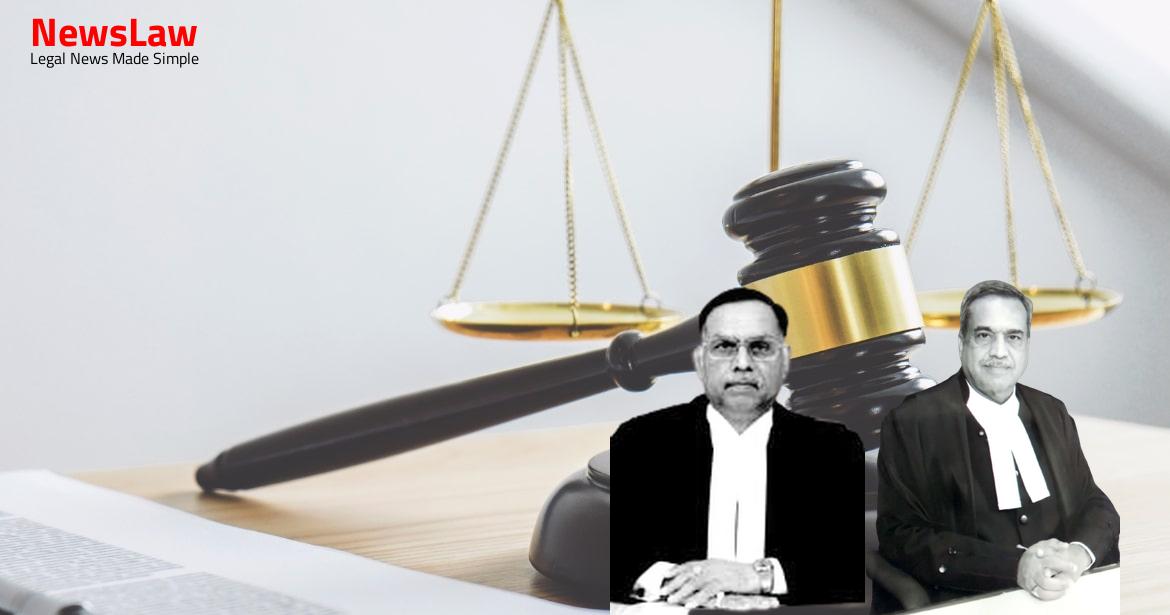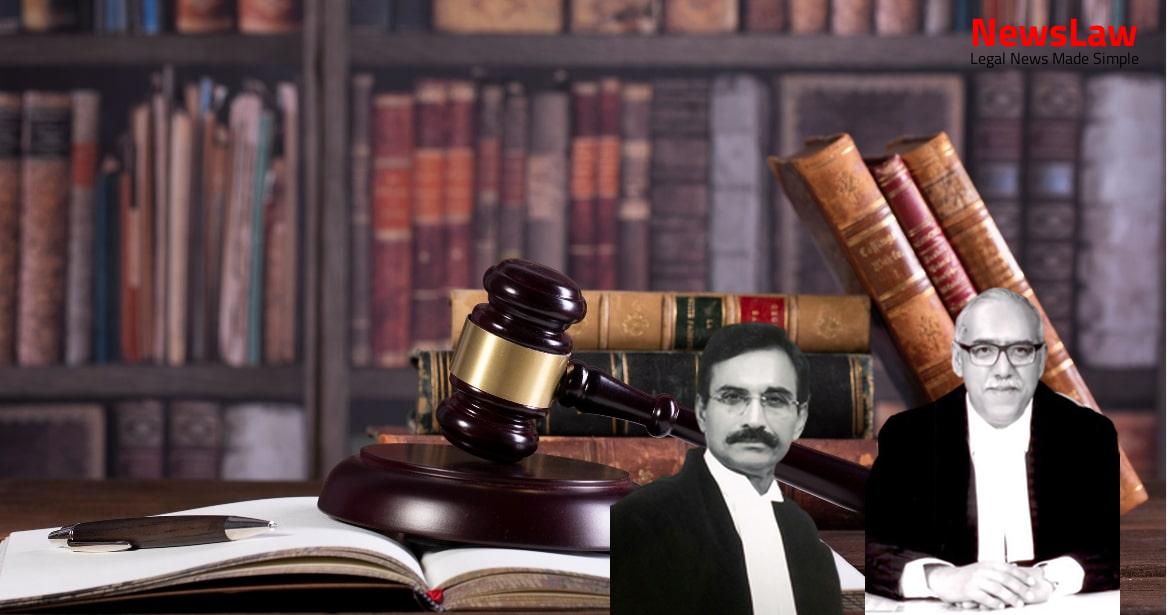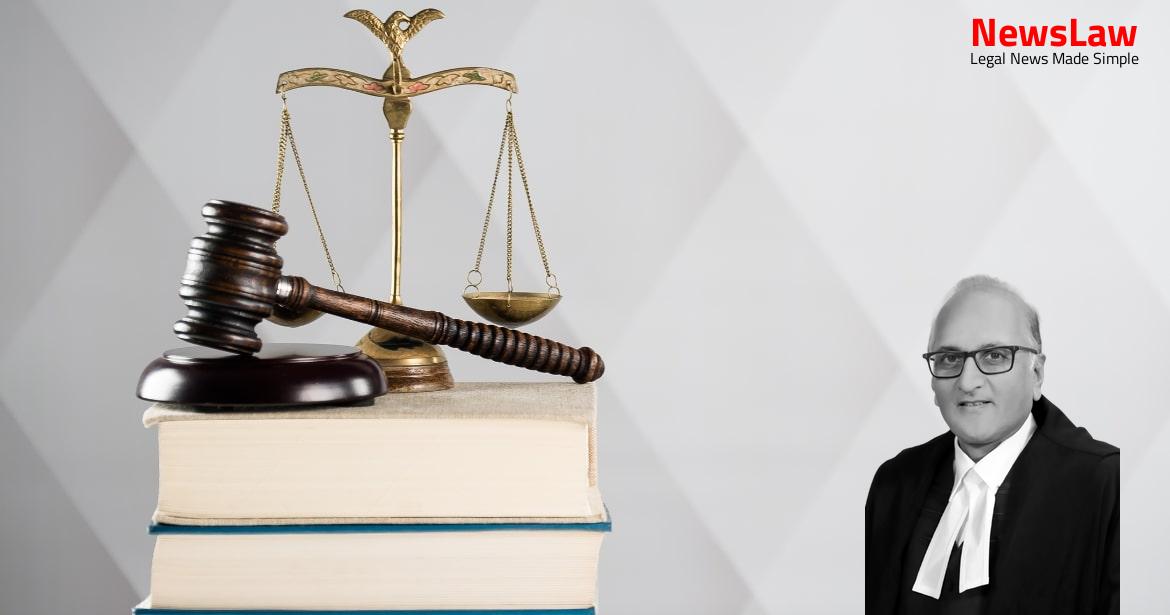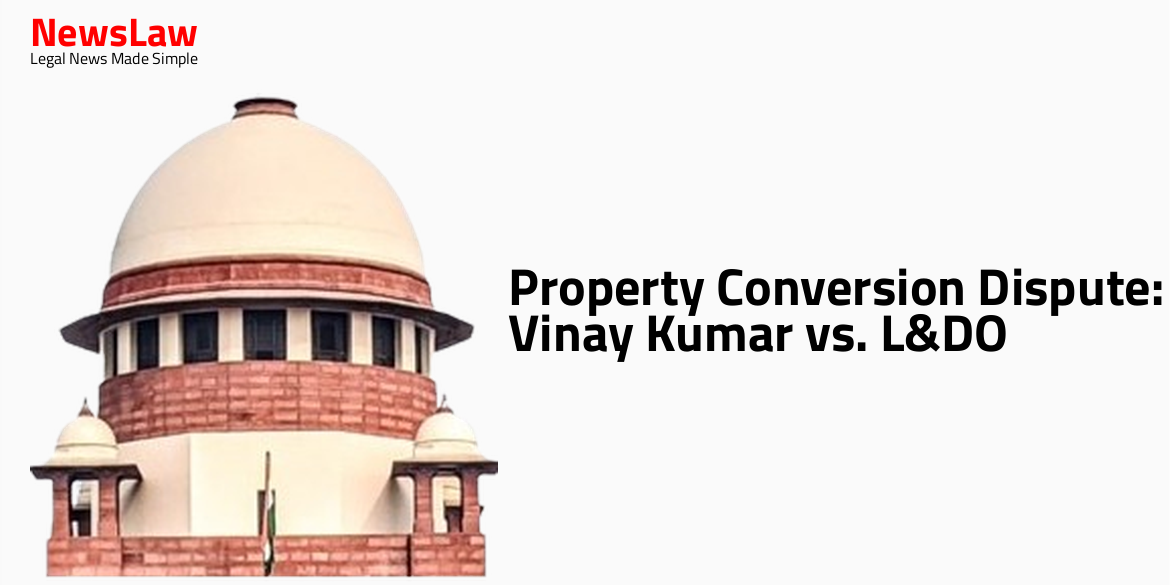Delve into the legal intricacies of a recent case involving the supersession of the Waqf Board. The High Court’s thorough analysis focused on the compliance with statutory provisions and the principles of democratic governance. This case highlights the importance of upholding the rule of law and ensuring the proper constitution of governing bodies. Stay tuned to unravel the court’s insightful legal conclusions in this complex legal matter.
Facts
- The period of the Waqf Board was extended multiple times by orders dated 20.05.2020 and 16.03.2020.
- Writ Petition No.7661 of 2020 challenged the order dated 14.07.2020 but was dismissed by a learned Single Judge of the High Court.
- Writ Petition No. 8377 of 2020 filed by Syed Ali Akbar challenged the supersession order and another order.
- Syed Ali Akbar, a member of the Board reconstituted in 2017, challenged the supersession order with delay.
- The State Government superseded the Board under Section 99 due to its inability to perform.
- The High Court upheld the supersession order in many writ petitions.
- The Division Bench of the High Court allowed Writ Petition Nos. 8377 and 9557 of 2020.
- Thiru A. Sirajudeed resigned as a member of the Board.
- The High Court set aside the supersession order partially for Syed Ali Akbar and Dr. Haja K. Majeed only.
- The High Court quashed the order dated 18.09.2019 only for two members.
- The election process continued despite legal challenges.
- The Board was unable to perform its functions due to imbalances in elected and nominated members.
- After a Court order, elections were held and two members were declared elected.
- Syed Ali Akbar filed another writ petition against press releases.
- Various writ petitions were filed challenging Government orders and the reconstitution of the Board.
- Membership of A. Anwhar Raajhaa, Member of Parliament ceased in May, 2019
- Two Senior Muslim Advocates nominated by the State Government under Section 14(1)(b)(iii) of Waqf Act, 1995
- State Government issued notification on 18.09.2019 superseding the Waqf Board
- Nomination of two Senior Muslim Advocates challenged in High Court and upheld
- Notification issued after show cause notice to 10 members of Waqf Board
- SLP filed against judgment with interim stay order passed on 28.08.2020
- State of Tamil Nadu appealed the judgment in these appeals
- State Government believed nominated Senior Advocates cannot be treated as elected members
- Board unable to function due to more nominated members than elected members
- Grounds for supersession mentioned in paragraph 8 of the notification 18.09.2019
- Writ petition proceedings initiated by the respondent and replies sent to the Government
Also Read: Transfer of Writ Petitions for Chartered Accountants’ Tax Audit Guidelines
Arguments
- State’s obligation to ensure the number of elected members is not less than nominated members as per Section 14(4)
- State’s power under Section 99(1) can only be exercised with prima facie evidence of financial irregularity, misconduct, or violation
- Grounds for supersession in the order dated 18.09.2019 not covered by Section 99(1) second proviso
- No grounds for invoking Section 99 apparent in the present case
- Nomination of two Senior Advocates under Section 14(1)(b)(iii) deemed void
- Provision of Section 14(4) not violated since nominated Senior Advocates should have been declared as elected members to maintain balance
- Responsibility to constitute the Board lies with the State Government, cannot benefit from its own error
- Section 14(4) mandates elected members to always be more than nominated members, election process under Section 14(1)(b)(iii) in absence of Muslim member
- There are no findings or allegations of any mala fide on the part of the State Government made by the respondents in the appeals.
- The term of the members is five years and cannot be curtailed.
- The State Government included two Senior Lawyers in the Board, which is not a violation by the Board.
- The High Court should not have set aside the notification dated 18.09.2019.
Also Read: Analyzing Interference with Acquittal in Legal Conviction Case
Analysis
- Section 99(1) of the Act, 1995 provides the power for the State Government to supersede the Board under certain circumstances.
- The State Government may supersede the Board if it is unable to perform its duties, has defaulted persistently, exceeded or abused its powers, failed to comply with directives, or is deemed injurious to the interests of the auqaf.
- Before superseding the Board, the State Government must provide the Board with an opportunity to present a defense.
- Superseding the Board requires prima facie evidence of financial irregularity, misconduct, or violation of the Act.
- The provision also addresses the composition and appointment of Board members.
- Section 22 of the Act states that vacancies in the Board or defects in its constitution do not invalidate its proceedings.
- Section 14 outlines the composition of the Board, specifying the roles of the Chairperson, elected members from different electoral colleges, and the nomination of members by the State Government.
- The electoral college is responsible for electing members from different categories mentioned in the Act.
- The High Court did not commit any error in holding supersession as contrary to law.
- The composition of the Board includes both elected and nominated members, and nominated members cannot be treated as elected members.
- The objective of the second proviso to Section 99 is to ensure prima facie evidence of financial irregularity, misconduct, or violation of the provisions of the Act before supersession.
- The term ‘violation’ refers to an infraction or breach of the law.
- The scheme of supersession as contained in Section 99 does not apply in the absence of financial irregularities or misconduct.
- The State Government must be conscious of fulfilling the objectives of Section 14 when constituting the Board.
- The composition of the Board should adhere to democratic principles and ensure that elected members outnumber nominated members.
- The State Government has the power to conduct elections for members as per the Act’s provisions.
- Violation of the provisions of the Act must be a result of the Board’s actions to warrant supersession.
- Prima facie evidence of financial irregularity or misconduct by the Board is necessary for supersession to be valid.
- The provision mandating a majority of elected members in the Board must be complied with by the State Government.
- The composition of the Board must align with the democratic principles outlined in the Act.
- Supersession cannot be based on technicalities but must be due to the actions, inactions, omissions, or misconduct of the Board.
- The High Court did not receive any further challenge on behalf of the writ petitioners regarding the supersession order.
- The relief granted by the High Court was limited to the Mutawalli category petitioners, as they were the only ones before the court.
- The State has appealed against the High Court’s partial setting aside of the notification dated 18.09.2019 for the Mutawalli category only.
- Although the High Court deemed the supersession order as legally invalid, it tailored the relief according to the specific category of petitioners and subsequent events.
- Writ Petitions 8377 and 9557 of 2020, filed by Syed Ali Akbar who belonged to the Mutawalli category, were allowed by the High Court.
- The High Court did not disrupt the fresh constitution of the Board through elections and nominations for other categories, except for that under Section 14(1)(b)(iv).
Also Read: Judicial Review on Sentence and Compensation in Criminal Case
Decision
- All appeals are dismissed.
- Fresh election of two members in category under Section 14(1)(b)(iv) held in 2020 is declared non-existent.
- Syed Ali Akbar and Dr. Haja K. Majeed will continue in their respective offices till the end of their normal tenure which started on 10.10.2017.
- The order of the High Court is upheld.
Case Title: THE STATE OF TAMIL NADU Vs. K. FAZLUR RAHMAN (2020 INSC 630)
Case Number: C.A. No.-003603-003605 / 2020



